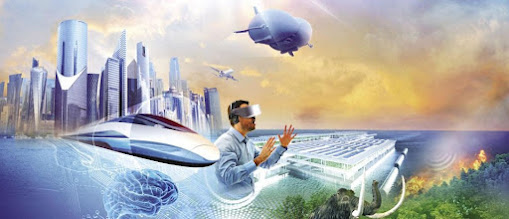Future technology ideas
Future technology
Recent discoveries and ingenuity has allowed us to create robotics in the form of Artificial Intelligence, as well as in the physical form of robots. Artificial intelligence has been used for a variety of purposes, including personal assistants in a smart phone, the first of which was Siri, released in the iPhone 4S in 2011 by Apple.[88] Some believe that the future of robotics will involve a 'greater than human non-biological intelligence.
This concept can be compared to that of a 'rogue AI,' an artificial intelligence that has gained self-awareness, and tries to eradicate humanity. Others believe that the future will involve AI servants creating an easy and effortless life for humankind, where robots have become the primary work force. This future shares many similarities with the concept of planned obsolescence, however, planned obsolescence is seen as a "sinister business strategy.
Man-controlled robots such as drones have been developed to carry out tasks such as bomb defusal and space exploration. Universities such as Harvard are working towards the invention of autonomous robots to be used in situations that would aid humans, such as surgery robots, search and rescue robots, and physical therapy robots.
Genetics have also been explored, with humans understanding genetic engineering to a certain degree. However, gene editing is widely divisive, and usually involves some degree of eugenics. Some have speculated the future of human engineering to include 'super humans,' humans who have been genetically engineered to be faster, stronger, and more survivable than current humans. Others think that genetic engineering will be used to make humans more resistant or completely immune to some diseases.
Some even suggest that 'cloning,' the process of creating an exact copy of a human, may be possible through genetic engineering.
Some believe that within the next 10 years, humans will discover nanobot technology, while others believe that we are centuries away from its invention. It is believed by futurists that nanobot technology will allow humans to 'manipulate matter at the molecular and atomic scale.' This discovery could pave the way for many scientific and medical advancements, such as curing new diseases, or inventing new, more efficient technology. It is also believed that nanobots could be injected or otherwise inserted inside the human body, and replace certain parts, keeping humans healthy for an incredibly long amount of time, or combating organ failure to a degree.



.jpg)
Comments
Post a Comment